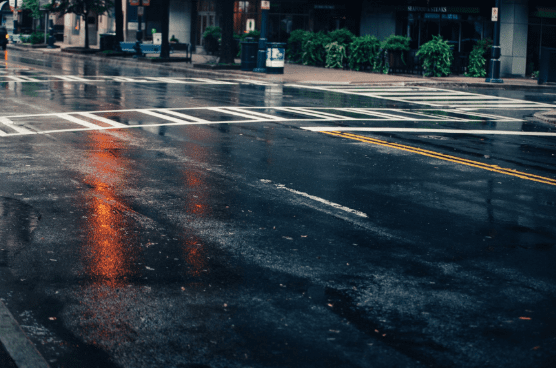
How Poor Road Conditions Impact Car Accident Liability
Driver error may be the most common cause of car accidents, but it’s not the only cause. Sometimes bad road conditions are responsible for a crash, whether a pothole, an uneven surface, a missing sign, or an infrastructure failure.
Understanding how poor road conditions impact car accident liability can help you build a compelling case for compensation after suffering injuries in a crash. This easy guide from The Scott Pryor Law Group can help you do just that.
Understanding the Role of Road Conditions in Car Accident Liability
Poor road conditions refer to any roadway defect, hazard, or issue that contributes to unsafe driving conditions. These may be caused by:
- Lack of maintenance
- Poor road design
- Delayed repairs
- Natural wear and tear
- Weather events or debris
While drivers have a responsibility to remain vigilant, there are certain road hazards that they can’t possibly anticipate or avoid. If poor road conditions directly cause an accident, responsibility for any losses that result may fall on the government or another responsible party rather than any of the drivers involved.
Common Types of Hazardous Road Conditions
Poor roads come in many forms, and all of them present a serious risk to drivers. Here are some common examples of accident-causing hazards:
- Potholes
- Crumbling pavement
- Cracks or uneven surfaces
- Faded or missing lane markings
- Broken or missing guardrails
- Inadequate signage
- Standing water
- Ice buildup
- Flooded underpasses
- Unremoved storm debris
These hazards can remove traction, impair visibility, confuse drivers, or force them into sudden, unsafe maneuvers, particularly at night or high-speed zones.
Who Is Liable for Accidents Caused by Poor Road Conditions?
When problems with roads cause accidents, determining liability can become a complicated matter. Some of the most common liable parties include:
- Government Entities: City, county, or state Departments of Transportation (DOTs) are typically responsible for the design, inspection, and maintenance of public roads. If a government agency fails to address known hazards or respond to complaints promptly, it may bear responsibility for any ensuing accidents.
- Maintenance Contractors: Government agencies often outsource road maintenance to private companies. If the contractor was negligent and their carelessness causes an accident, they may be liable for any resulting injury or damage.
The Comparative Negligence Rule
Georgia follows a modified comparative negligence system when apportioning liability in car accidents. That means you may recover compensation for the accident provided you’re less than 50% at fault. However, your compensation will be reduced by the percentage of your fault.
How to Prove Liability in a Road Condition Claim
Showing that a government entity or contractor is responsible for your injuries is not easy, but it’s absolutely possible provided you have strong evidence to support your claim. That evidence might include:
- Photos and videos of the road hazard and surrounding area
- Witness statements from passengers, bystanders, or nearby drivers
- Maintenance logs and repair histories showing negligence
- Accident reconstruction specialist testimony
Government entities have what’s known as “sovereign immunity” which essentially makes it a lot harder to hold them accountable in a personal injury claim. This means a whole different protocol for filing with unique deadlines and other challenges, which is why working with an experienced personal injury attorney is so crucial.
Legal Challenges in Road Condition Accident Cases
You may have a rock-solid case, but there are several challenges you’ll have to face if you want to successfully pursue a claim against a government entity. Those challenges include:
Government Notice Requirements
You’ll need to file an ante litem notice within 6-12 months of the accident, depending on the entity to notify the government of your intent to file a lawsuit. Missing this deadline can mean forfeiting your right to pursue compensation altogether.
Denials and Shared Blame
Government agencies often deny responsibility by claiming they were not aware of the hazard, the hazard was “open and obvious,” or the driver’s negligence was the main cause of the accident. This can be difficult to disprove without ample evidence.
Insurance Loopholes
Insurance companies have various tricks up their sleeves when it comes to denying responsibility for accidents caused by poor road conditions. They often turn to known loopholes in policy language that can deflect blame or minimize what they owe you.
Compensation You May Be Eligible For
Compensation for car accidents caused by poor road conditions can cover your vehicle damage, physical injuries, emotional damage, and financial losses. Your attorney will likely seek to recover the following:
- Current and future medical expenses related to your injuries
- Lost wages from time off work
- Damage to your vehicle and any other property
- Pain and suffering caused by the accident and your injuries
Specific losses like medical expenses and lost wages are calculated through bills, invoices, receipts, and financial statements, while intangible losses like pain and suffering are calculated using a special formula that takes your financial losses, physical pain, mental anguish, and emotional trauma into account.
What to Do After a Road Condition-Related Accident
You can make a significant difference in the outcome of your personal injury case by acting swiftly and judiciously after an accident. Be sure to do the following:
- See a Doctor Right Away: Even if you don’t feel hurt, seek medical attention immediately. This protects health, but it can also protect your rights by creating an official document linking your injuries to the accident.
- Report the Accident: A police report can also serve as crucial documentation detailing the date, time, and location of the accident, along with many other key details.
- Gather Evidence: Take photos and videos of the road hazard and accident scene, gather witness contact info, organize all medical and financial records, and hold on to any other evidence connecting your injury to the accident and showing its impact on your life.
- Contact an Attorney: An experienced personal injury attorney can lead you through the complicated process of seeking compensation from a government entity and help you avoid critical errors along the way. Contact one as soon as you’re able.
Contact a Personal Injury Lawyer Today
If you’ve suffered injuries in a car accident caused by poor road conditions, The Scott Pryor Law Group can help. We have extensive experience standing up to negligent government agencies and fighting for the accountability and fair compensation our injured clients deserve. Contact us today for your free consultation.










